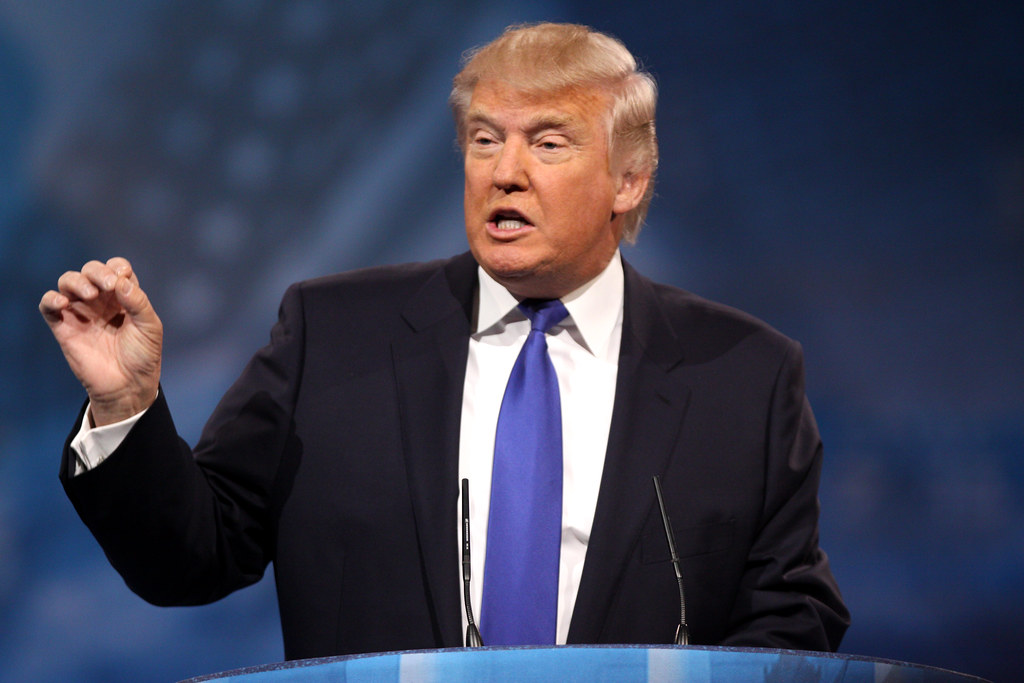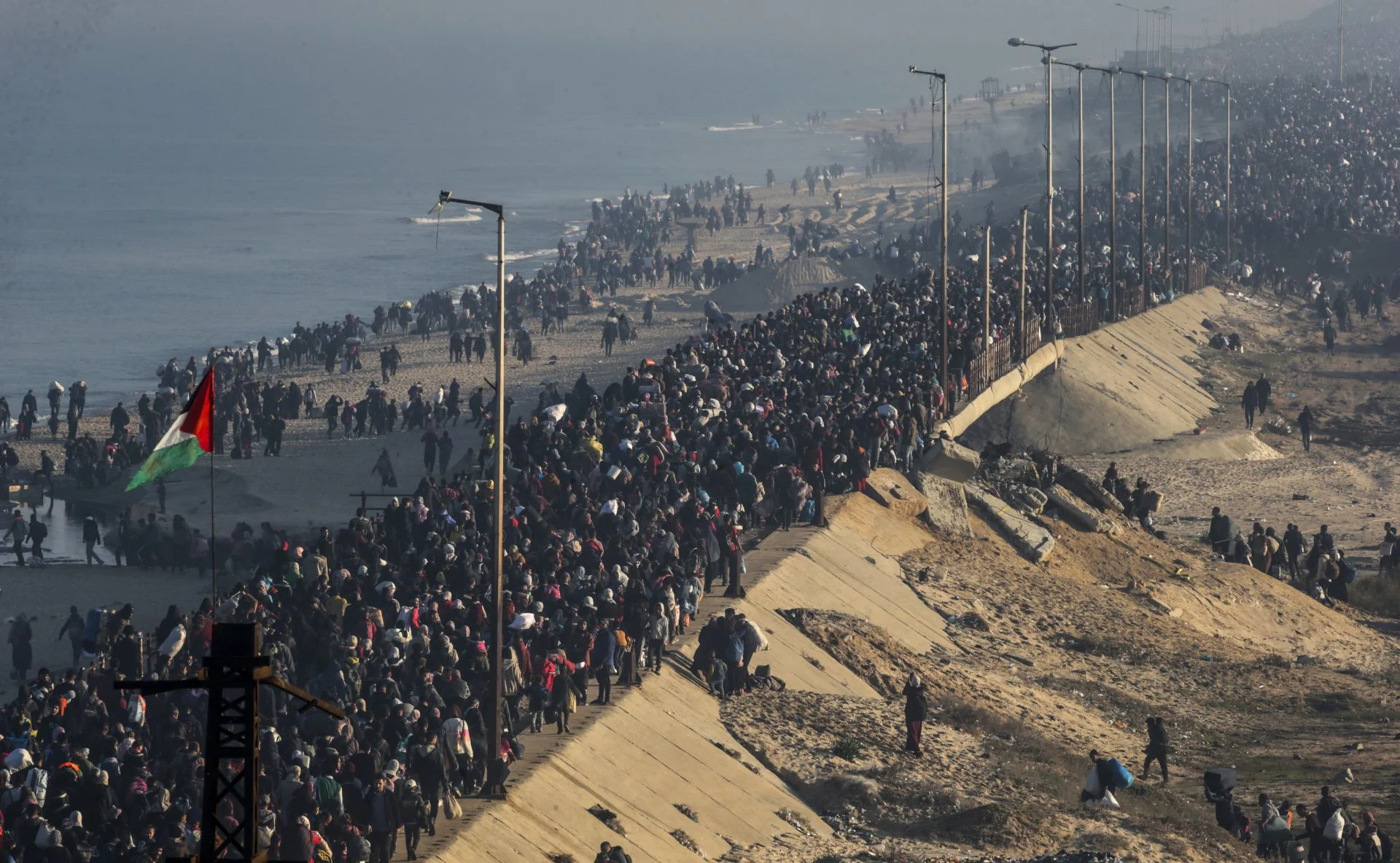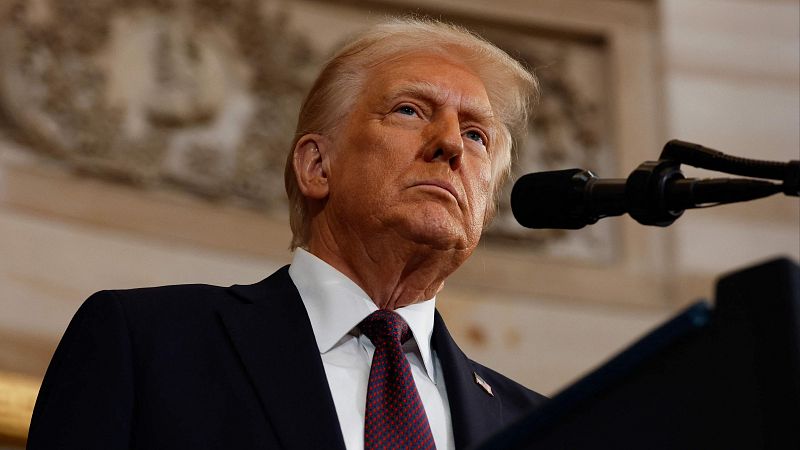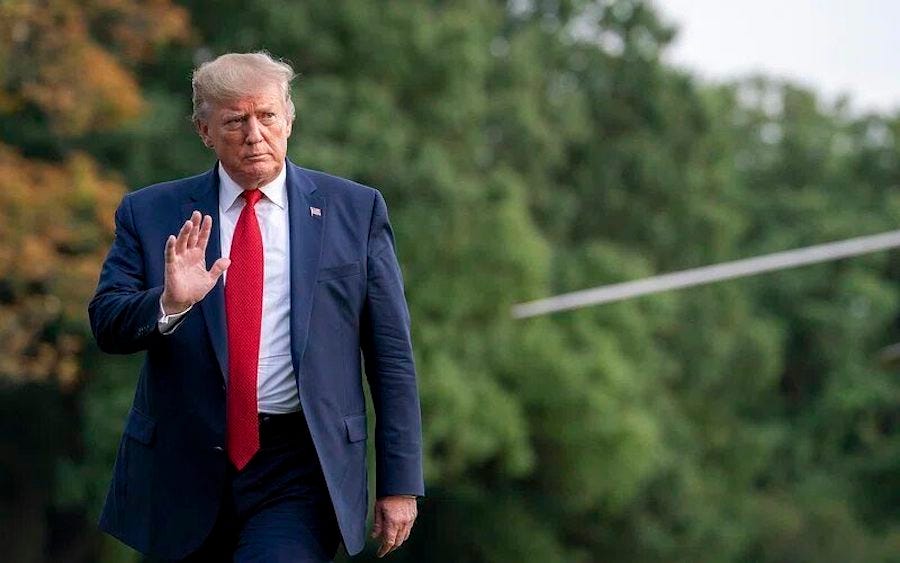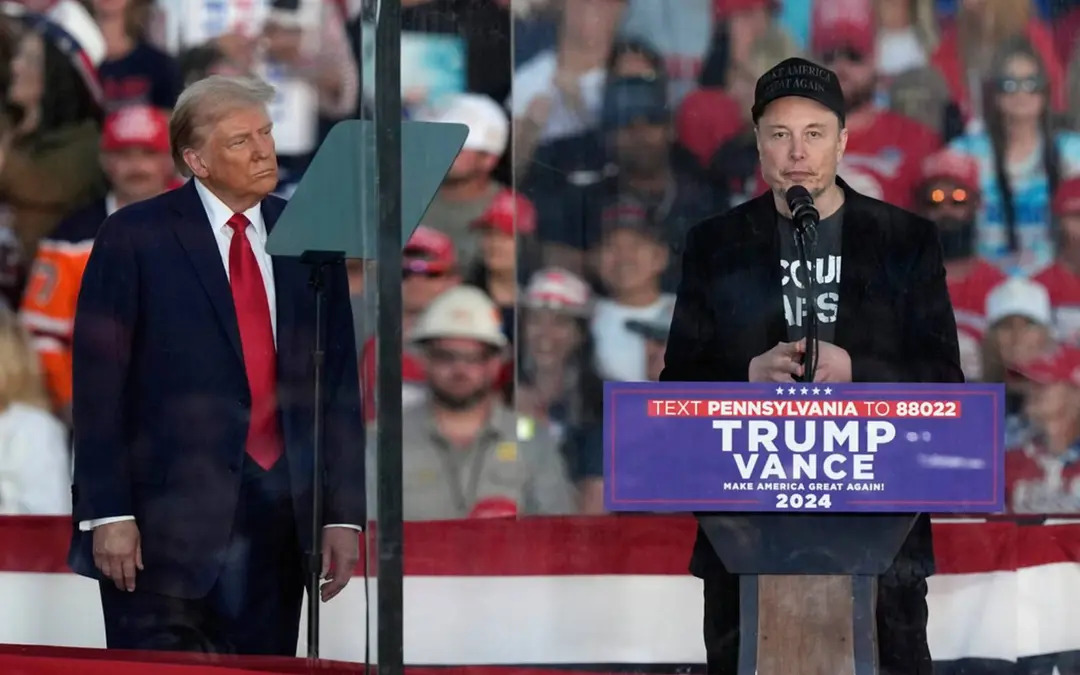Trumpism, geopolitical interests above principles
- Former Republican President Donald Trump has clearly won the White House battle against the current Democratic Vice-President, Kamala Harris. It will have a 312/226 advantage in the January vote at the Electoral College. In 2016, Hillary Clinton was defeated, but managed to get more votes out of the citizens. This is an unfair excuse. Trump has pulled Harris five million votes apart. And this very clarity of the result will decisively condition its management. On the part of the winners and losers.

Confirming this trend in presidential elections, Republicans have improved their results, with hardly any exceptions, both in the Senate and in Congress. The Trump party will have control of the two chambers in its hands (because it is her party, in a sense of ownership -- more than until recently we called the Grand Old Party).
As far as cleaning is concerned, the cleaning of 5 November also has few excuses. Many bitter observers and losers have not shown special contempt, as many would have feared if the result were the other way round.
The excuse of “polls have failed”, a classic on these occasions, should not have extra credibility either. Although the shattering of the sauna of hundreds of surveys that have been published from state to state can give rise to everything, the crossing of the “sum of surveys” shows that, whenever it has been done in form, the results have been successful.
But we cannot say that we are facing an unreasonable outcome. Without great differences, despite the fact that for months, when he was the unofficial candidate of the Democrats in Biden, the polls have confirmed what was planned, the results have disappointed many. In the United States, a lot of thoughtful people have been left with their mouths open. Within the Democratic Party, the reflection on defeat has put the most serious problems on the table; the most obvious concerns would be about names, but also the need for deeper thinking.
It is clear, on the one hand, that the classic strategy of “making a majority with the sum of the minorities” of Democrats, which already showed its decadence, has hit the bottom. Its strengths for decades (black, Latina, industrial workers, Catholic and, in part, women who are aware of it) have had to be shared with Republicans on a case-by-case basis, but in a common trend. And he has not been able to find his replacement.
In the coming months, we will have to see in the Democratic Party the reactions (and clashes) to this crisis, waiting for the mid-term elections of two years to bring some new demographic comment.
Strongman
In Republicans, of course, the environment is quite the opposite. But not without concern. Beyond the egocentrism that characterizes him, Donald Trump has become the party’s owner and master with these results. He is now not only the head of the White House, but also the all-powerful Lord of the Senate and Congress. Anyone who wants to have something between Republicans has to be in his hands in the future, on any of the fundamental issues. And that's unprecedented, not in the long history of the Republican Party, I would say, in the entire history of the United States.
The elections of 5 November 2024 have enshrined a strongman with a large dictator figure, a solvent that can use as a transmission belt the party’s structure so that the legislative chambers do not get out of the mouths and do everything the power needs. Nor will the Supreme Court find itself in a position of restraint, for it is very large in size, and because the new appointment to it will be more convenient than ever before. The division of powers in the United States has been very close to being a myth. On the other hand, the “prudent” effort to be its schism, as the so-called Project 2025 wants to do, becomes a successful spectacle.
In any event, the forms of lameness inherent in this scheme should not be underestimated. The first is that, as the source of authority is unique, closeness to it is decisive for everything... And that can be a terrible source of wedges everywhere and everywhere. Trump’s versatility, and the pathological tendency to have around him enemies with each other, will in no way help him to suffer.
An exceptional problem may be that for that total reform of the administration which says that it wants to be the most special measure of its internal policy, an uncontrollable outsider such as Elon Musk will be put in place. Those who have kept Trump’s old fidelity will not be able to see with good eyes the powerful presence of these, because they will harm many or a few of the clientelist networks that each has...
And because the poisoned fruit of the succession will also be immediately wrapped at the table. President 47 will be an elderly person and, no later than the first day, the only thing that is clear is that he will not be 48. This evidence will be a major factor in the instability of the mandate.
Economy, aixkiria
In order to clarify the causes of the results, the impact of the economy has been mentioned from many points of view, in particular because of the damage that high levels of inflation have caused to the general public. I do not agree with this approach, but in any case, inflation and the main macroeconomic factors are not under the mandate of the White House, but under the mandate of the Federal Reserve System. And it gives the impression that they're going to keep doing it despite Trump's orders; or, at least, that's Jerome Powell's intention. We can say that it is one of the only counterweights in the strongman.
It's no nonsense. During his first term, Trump also wanted to control that lever of power, but much less successfully than in the Supreme Court. And to do so, you can hardly find the approval of the plutocrats: economic orthodoxy is fundamental for business, although it clashes with the sociopolitical agendas of the White House.
On the subject of inflation, and in a closely linked financial policy, therefore, the economic results of its policies will have more weight than Trump’s wishes: fuel prices, tariffs imposed on China and Europe, the impact of reducing immigration on the price of labour...
In fact, trumpism often uses topics such as immigration as mere social instruments to stir society (“awakening”, in its language) and to weave wills; but never without taking into account its economic reverse. And so the United States returns to the scene of a century ago: progressive ideological currents demand generosity towards immigration -- and a large part of the capital; and the hardest closing is that of a spectacular set of the population. The crux of the problem may be what we might call “talent management,” which China Strategy Initiative can lead to collapse.
Principal and Single
The foresight of the effects and consequences of Trump’s second mandate for the foreigner, that is, for the whole world, is very intuitive if we take into account his personalism and the difficulty of foreseeing. Insofar as a programme worthy of the name is not known, nor is it a possible responsible person for this paragraph, the only clarifications are the background to its first mandate and the loose statements it has made on external relations in the context of the campaign. And they will have to be used for a minimal prognosis.
Consistent with the common tightening of the security zones and strategy of the United States, Trump firmly believes that the enemy is China. In addition to the main one, the only one, all other persecutions would be lower-level, almost exclusive circumstances. And that nuance makes him directly clash with one of the fundamental pillars of the geostrategy of the Biden and Obama administrations: for them, if Russia has been an eternal and unadaptable enemy, Trump believes or pretends that the United States must reconcile itself with Russia and make it hostile to China. That is why it has been clear from the outset that the war in Ukraine is an unforgivable mistake on the part of the Biden Administration, above all because it has pushed Russia into the arms of China. He says he must start the reverse path from the first day of his term of office.
It's more than an occurrence of a man of exalted imagination. H. recently deceased We could say that it would be the reverse of Kissinger’s strategy: you never have to fight at the same time with two great enemies; you have to bring one of them by your side, against the other. Knowingly or carelessly, Trump’s project would be a kind of starting point for the return of what Kissinger did on Nixon’s order in the early 1970s “normalizing” relations with China. With the same goal then: divide and divide. Then the war in Vietnam and Cambodia had to be done for Chiang Kai-shek and many other circumstances; now the war in Ukraine, Nord Stream, the Caucasus, etc.
Knots
Giving very simple remedies to very right-handed knots always entails a terrible risk of failure, which would be no exception. With the economic sanctions imposed on Russia, the Biden Administration has brought serious socio-economic pain to its allies, especially the Europeans, who now, quite simply, would not be free to make a 180-degree turn. But it is also a chimera to come to an intimate friendship with Russia. Ukraine is just one of the elements that are part of the problem.
It's a deep mess because it's more diabolical. Germany, Italy and Japan – defeated in war and, de facto, still occupied – or the United Kingdom and France – persecuted in war – Russia is a military and, in part, economic power on its own. In other words, it has not lost strategic sovereignty (as we are seeing in the case of India; and ... the differences, as has already happened with China). More than a mere play of billiards, it will take Russia and China to break their marriage, which is now of great interest to them.
The added difficulty is that Trump himself and his environment are, I think, the most knowledgeable elite in China in the United States for decades. His knowledge is limited to the crude propaganda against him and have as ideology a vision that does not depart much from the classical xenophobia Yellow Peril. You can't get away from the refined brush and knowledge of Kissinger and others.
War yes or no?
This brings us to the question of the problem: Can the conflict between the United States and China lead to a direct war in Trump’s second term? If the rejection of the campaign war persists, but also in the external public statements, one could say that the danger of war between the two big should be further away than hitherto. But the rejection of Trump's war has never been pacifism, and it always has to be understood that it refers to the wars in which the United States of America is. Proxy wars have never been included in that resignation, and no one will ever hear Trump speak of the need to cut the military budget.
The core of the key is whether it is possible for the United States to submerge China into one of those subsidiary wars in Taiwan, with the Philippines in the South Sea, on the Korean peninsula, with Japan in Ryukyu -- to quote scenarios that today seem imaginable. Others (Myanmar, India, Vietnam) would be much more difficult.
The possibility should not be underestimated, particularly in the case of Taiwan and the Philippines. The antecedent of his first mandate shows that the Trump administration will first try to damage China’s economy, with its tariffs and with all the economic instruments it is given. But that path is already exploited and the results are not great. It causes serious damage to American pedestrians and many of their businesses, causing injuries that are barely noticeable on the other side of the country. As their sterility is confirmed, the temptation to inflame armed hostilities will multiply, especially if the economic situation deteriorates in the United States.
It doesn’t seem so easy that Trump becomes passionate about such a violent race; but the China around him will have the most abundant hawks (S. Bannon, B. Hagerty N. Haley, R. Grenell, T. Cotton and the rest) will be of that tenor boost, as will the top professional leaders of the Pentagon. Almost everyone has been thinking for a long time that the delay in the direct fight with China only makes the relationship of United States forces worse. However, it can be quite the opposite, E. And the chorus of plutocrats like this, which has always been more pleasing to Trump. The question is whether a direct conflict between the two largest powers in the world today can be more than a complete Harmagedona.
In any case, it should be concluded that the East Asian scenario will be an absolute priority in Trump’s external strategy. And that, by the way, the network of alliances in it will be a priority.
Allies and assistants
But it is important to know beforehand how President 47 of the United States understands alliances. Unlike “axes” or “ententes”, the most elaborate, more regulated events are usually geopolitical alliances based on the fiction of possible equality of partners. Then, in reality, they always have an “alpha country”, and their expression is the law, as we have seen without going too far. For Trump, however, in his first mandate on NATO, that working model was also "too much assembly", especially in the form of contributions of money and resources, and it had to be radically transformed to impose discipline on the projects of the supreme leader. The allies had to be, in short, the master’s servants.
Something similar has been achieved in NATO, thanks to the war in Ukraine, a Biden administration with a very different view of alliances: money and resources have multiplied, shipments to Ukraine have been quite close to those agreed, the “climate of alliance” has improved a lot of what Macron once called “brain death”. German warships have also been brought into entanglement in the Taiwan Strait. For the first time, for over a hundred years.
If Trump’s second mandate is a remake of the first, all of that can also remain in nothing, from everything that has to do with Ukraine. It would be sarcastic if NATO members in Europe, almost unanimously, tried to prevent the war from resisting only three years later. But the war has gone too far to be able, in addition to resolving from one day to the next, to calm down again, and it's not Trump's signature to get into long, complex plays.
The same view also serves for the abominable massacre in Gaza and the widespread conflict in the Middle East. Netanyahu has joyously celebrated Trump’s victory, perhaps because he has decided that he will not only have the blessing of everything he has done so far, but will also have the opportunity to do so definitively. It can be too early for so much joy: Trump’s vision, not in the Middle East or anywhere else, is not based on some principles, but on interest. And his interest, as he showed in his first term, has two legs in this region. One, yes, is Israel; only for internal issues in the United States. The other leg, however, is on the Arabian Peninsula and the Persian Peninsula. And he needs the two to walk.
Zutabe hau idazten nengoela, gaia aldatu behar izan dut, nire arreta osoa harrapatu dutelako Trumpen muga-zergek. Azalpen gutxi beharko duzue, leku guztietan da berria, Txinako produktuei %10eko zerga eta Kanadako eta Mexikoko produktuei %25eko muga-zergak jarri dizkie. Trumpek... [+]
Donald Trump will take office again on January 20 and will resume office as President of the United States. If, in the previous mandate, 2017-2021, he was not shameful in decision-making, in this mandate he will remove those scarce complexes and do whatever he wants, as the... [+]
Everyone is accounting for what can happen in Trump 2.0 and what can happen in the world. One of the few forecasts that can be given as a little from the knowledge of the subject's frivolity is that relations with China in the United States, at least economic, will deteriorate... [+]













